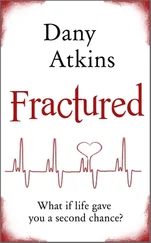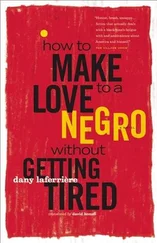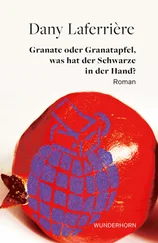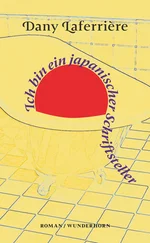“It’s open.”
She comes in. He doesn’t get up.
She stands in the middle of the room. He looks at her tranquilly.
“I can’t do it anymore.”
He keeps looking at her.
“I want. .”
She stops, thunderstruck. A fierce storm appears to be raging in her head. He waits, silently.
“I want. .”
She stops again.
“I want. .”
Her knees buckle slightly.
“The other day you said, you said. .”
“What did I say?”
A moment’s hesitation. But she recovers. He has the feeling she may get away from him. Then she lowers her head.
“You said that you’ll. . make me. . moan. .”
Charlies says nothing.
“I don’t know why,” she goes on, “but since then I’ve been able to think of nothing else. .”
He decides not to have her today. She is suffering, but her pain is her pleasure.
WEDNESDAY MORNING. As usual, he finds the gate open. His mother is peeling potatoes in the kitchen, which is clean and well lit. He sneaks up silently behind her back. She is singing “The Red Roses of Corfu.” Her happiness song. The one she sings when she’s happy.
“Oh, it’s you,” she says without turning around.
“How are things?”
“Very good, my dear.”
“And Papa?”
“Your father is very excited because he planted some birds of paradise; you know how difficult it is to get them to grow. . Well, yesterday he called me out into the garden, where as you know I hate to go because of the anole lizards, to see their magnificent flowers. They really do look like birds. Even the Ambassador was impressed.”
“And Mademoiselle Abel?”
His mother looks at him in astonishment.
“Why are you asking about her?”
“She and Papa weren’t getting along, and, if I remember correctly, you were pretty worried about it.”
“Oh, we hardly ever see her anymore. First she was always underfoot, now she doesn’t even come home for dinner. And when she is here, she shuts herself up in her room.”
“And that doesn’t bother you?”
“No! Things are much better this way. .”
“Okay, Mama, I’ve got to go.”
“Already? Do you need money? I don’t have much, but. .”
“No, I’m fine.”
“Are you sure you don’t need anything?”
“I’m sure.”
“Good. Don’t forget to shut the gate behind you.”
“Yes, Mama.”
I tell you it’s springtime by placing
a couple in the centre of the landscape.
DAVERTIGE
MY NAME IS Laura Ingraham. I’m thirty-five years old. Men find me attractive because I am tall, slim and blonde, but they also find me a bit frightening because I’m a New York Jewish intellectual. I was born in New York, and have lived there all my life. I love that city. Especially its hardness. New York doesn’t believe in tears, as does, say, Moscow. My favourite book is Breakfast at Tiffany’s, by Truman Capote. I always keep it in my handbag and take it out whenever I have a spare minute somewhere. For a long time I worshipped Andy Warhol. I collected anything from that era (late sixties, early seventies), the time of The Factory, the Warhol studio. My biggest regret is that I was never at Studio 54 when Jackie Kennedy, Liza Minnelli and Bianca Jagger were there. My favourite type of man: Peter Beard, the photographer/adventurer. My favourite film: Woody Allen’s Manhattan. I’ve seen it more than a dozen times. I also love men’s underwear by Calvin Klein. Do you remember Diane Keaton wearing it in Annie Hall ? Well, I wore the same kind for years, right up until the time one of my lovers (a music critic for Rolling Stone ) told me that once you’re past adolescence such things are ridiculous. But it wasn’t ridiculous to me.
I HAVE ANOTHER side that no one knows about. My secret garden. It’s a story that goes back to my childhood. I was five. One day my father brought home a small painting (a landscape) and hung it in my bedroom, above my bed. A simple landscape, of the naïve school. Sometimes, at night, when I was afraid, I would spend a long time looking at this painting (nature, benevolent, luminous), until eventually my nerves would settle down. Sometimes I would imagine living in my painting. Being born in such a place instead of in Manhattan. But I need both. My urban landscape and my imaginary one. Manhattan excites me. But the landscape calms me. I believe that this duality is part of my deepest nature. Like most excitable beings, I am capable of remaining calm and quiet for hours on end. My friends are totally unaware of this aspect of my personality. All they know is this woman who is capable of spending two hours in Bloomingdale’s looking for a scarf to wear to a cocktail party that evening, then after the party running out to Queens to visit a some friends before ending the night at some trendy new club on Long Island. No matter what the hour, I never go home without stopping on Park Avenue to pick up some warm bagels. This is the girl, urban down to her fingernails, that my friends know (even my closest friends). However, I can also be this little country girl who gets up at the crack of dawn with the roosters and goes outside in bare feet to gather ripe fruit that has fallen to the ground overnight. Am I schizophrenic, like most of the people who live in this city? When I left my parents’ house and rented a small apartment near Columbia University, the one thing I took with me was that little landscape painting. And the first thing I did was hang it in my bedroom. Whenever I happened to wake up in the middle of the night with a bad case of the sweats (loneliness, combined with fear), that painting (the sole constant in my life) was the only thing that would calm me down.
I STILL HAD no idea what country the painting came from. I could have found out easily enough, if I’d wanted to, by looking at a few art books in the Public Library, but I was never interested in the painting’s origins. The landscape existed so concretely to me that I never thought of attaching it to any particular place. Except for the place that existed inside me. But I took that place with me wherever I went. One day I was meeting an old friend at a bar not far from moma (the Museum of Modern Art in New York), and as I was a bit early (a mania with me) I decided to kill some time at the museum. There happened to be an exhibition of Haitian naïve art. And there, to my astonishment, were these enormous canvases (enormous in their quality more than in their dimensions) in the same style as my little landscape. It wasn’t so much that I had found a country; I had discovered a universe. An enchanted world. Brilliant colours. Animals, people (lots of people), mountains. Thatched huts on the flanks of blue mountains. Fish flying through the air. Cattle crossing swollen rivers. Cocks fighting. Marketplaces. Tall, slender women calmly walking down from the hills with heavy sacks on their heads. Children playing in dreamscapes. The sea. Everywhere, the sea. And no one looking at it. Natural life. Only after I had made a complete circuit of the exhibition did I begin to notice the names of the painters. The signatures danced in the corners of the canvases. Salnave Philippe-Auguste, the friend of the Douanier Rousseau (“I want to speak of Rousseau’s Dream. Just as one could say that everything is contained in the Apocalypse of Saint John, so, I am tempted to say, this huge painting includes all poetry, and with it all the mysterious gestations of our time. .”—André Breton, 1942). The quote was printed across the back wall of the room in which the massive jungle scapes of Salnave Philippe-Auguste were hung. In another room: the imaginary villages of Préfète Duffaut. The maniacally delicate precision of Rigaud Beno  t. Jasmin Joseph’s candor. Saint-Brice, who drew me in and frightened me at the same time. And the immense Hector Hyppolite (a Homer who used colour instead of words). Most of all, what sealed my loyalty to these magical works was the natural way they dealt with death. Life and death intermingled. They even made me wonder if death didn’t precede life. For me, who had always been afraid of the dark, this was the first time I had felt calm when confronted with symbols of death (especially in the paintings of André Pierre). I don’t know what happened (the security guard came and cast an uneasy glance into the room, even though I was the only visitor), but I no longer felt as though a block of cement were sitting on my chest, preventing me from breathing, as I had felt since my childhood. These are my people! These are my people! These are my people! I must go back to my people! I felt like an animal that had strayed from its herd, and years later was beginning to find traces of it. I absolutely had to get myself down there immediately. It was a matter of life and death.
t. Jasmin Joseph’s candor. Saint-Brice, who drew me in and frightened me at the same time. And the immense Hector Hyppolite (a Homer who used colour instead of words). Most of all, what sealed my loyalty to these magical works was the natural way they dealt with death. Life and death intermingled. They even made me wonder if death didn’t precede life. For me, who had always been afraid of the dark, this was the first time I had felt calm when confronted with symbols of death (especially in the paintings of André Pierre). I don’t know what happened (the security guard came and cast an uneasy glance into the room, even though I was the only visitor), but I no longer felt as though a block of cement were sitting on my chest, preventing me from breathing, as I had felt since my childhood. These are my people! These are my people! These are my people! I must go back to my people! I felt like an animal that had strayed from its herd, and years later was beginning to find traces of it. I absolutely had to get myself down there immediately. It was a matter of life and death.
Читать дальше
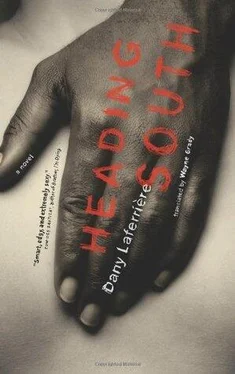
 t. Jasmin Joseph’s candor. Saint-Brice, who drew me in and frightened me at the same time. And the immense Hector Hyppolite (a Homer who used colour instead of words). Most of all, what sealed my loyalty to these magical works was the natural way they dealt with death. Life and death intermingled. They even made me wonder if death didn’t precede life. For me, who had always been afraid of the dark, this was the first time I had felt calm when confronted with symbols of death (especially in the paintings of André Pierre). I don’t know what happened (the security guard came and cast an uneasy glance into the room, even though I was the only visitor), but I no longer felt as though a block of cement were sitting on my chest, preventing me from breathing, as I had felt since my childhood. These are my people! These are my people! These are my people! I must go back to my people! I felt like an animal that had strayed from its herd, and years later was beginning to find traces of it. I absolutely had to get myself down there immediately. It was a matter of life and death.
t. Jasmin Joseph’s candor. Saint-Brice, who drew me in and frightened me at the same time. And the immense Hector Hyppolite (a Homer who used colour instead of words). Most of all, what sealed my loyalty to these magical works was the natural way they dealt with death. Life and death intermingled. They even made me wonder if death didn’t precede life. For me, who had always been afraid of the dark, this was the first time I had felt calm when confronted with symbols of death (especially in the paintings of André Pierre). I don’t know what happened (the security guard came and cast an uneasy glance into the room, even though I was the only visitor), but I no longer felt as though a block of cement were sitting on my chest, preventing me from breathing, as I had felt since my childhood. These are my people! These are my people! These are my people! I must go back to my people! I felt like an animal that had strayed from its herd, and years later was beginning to find traces of it. I absolutely had to get myself down there immediately. It was a matter of life and death.